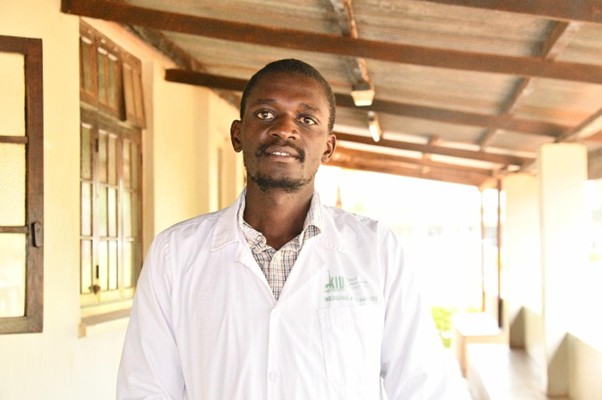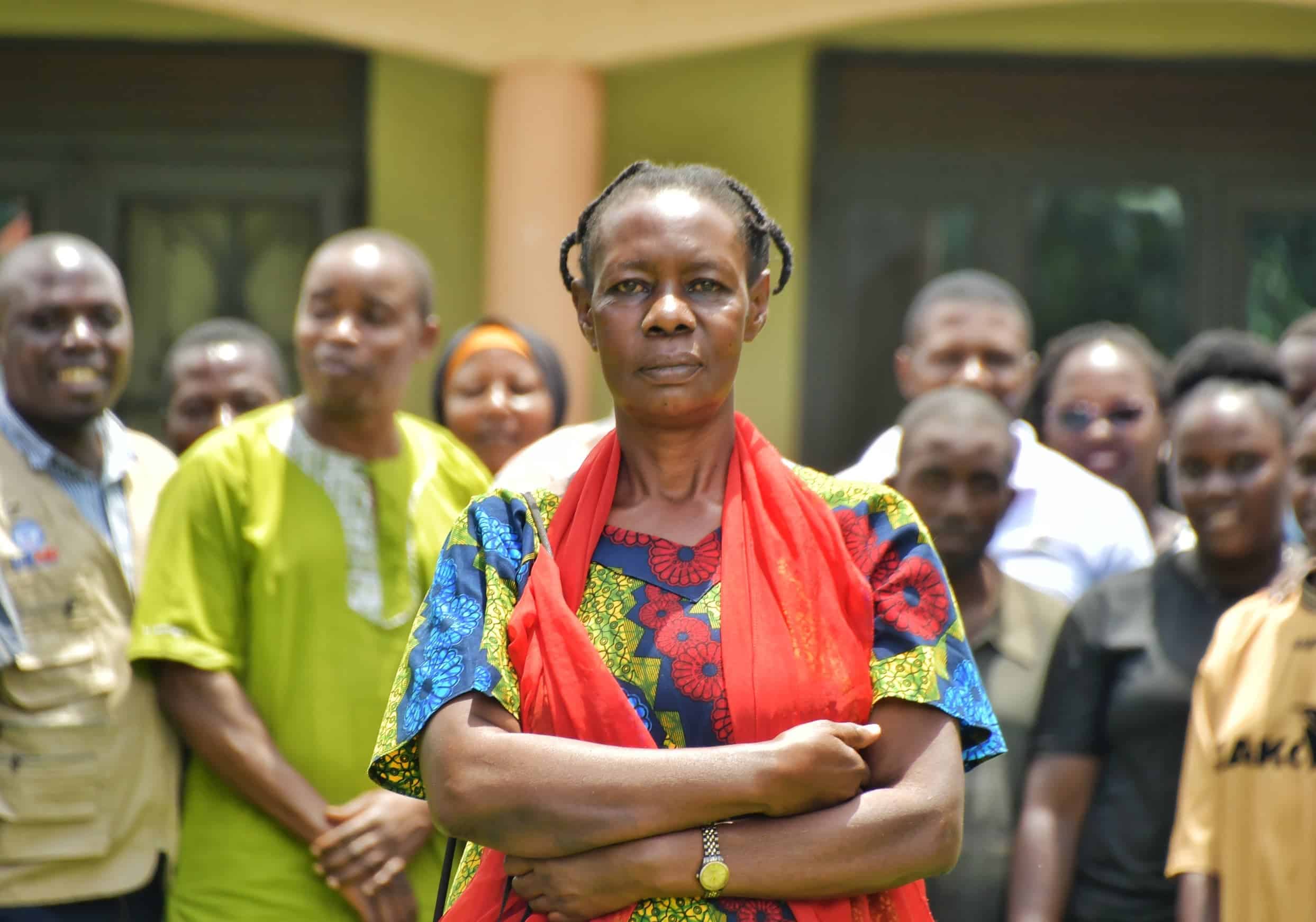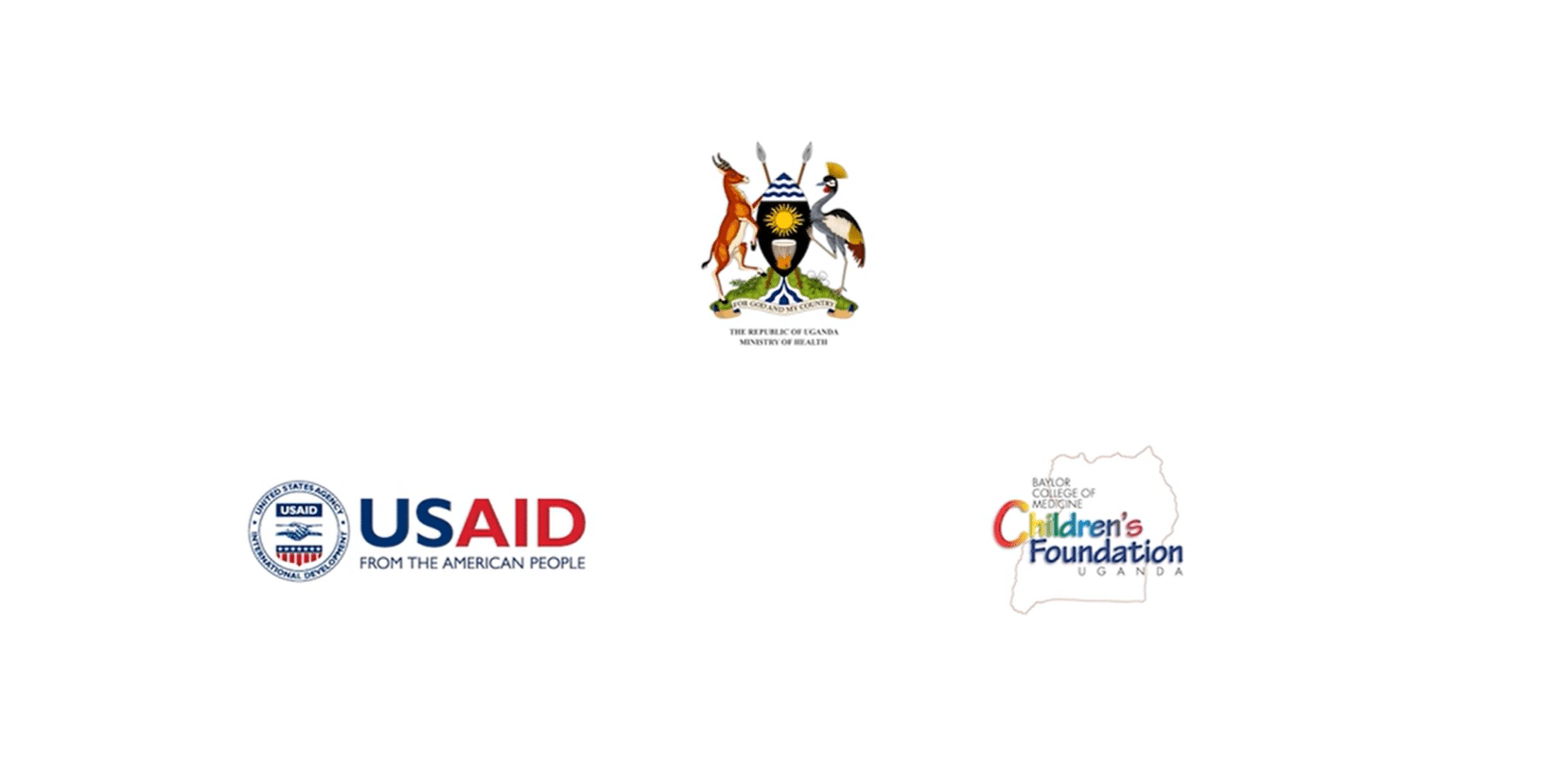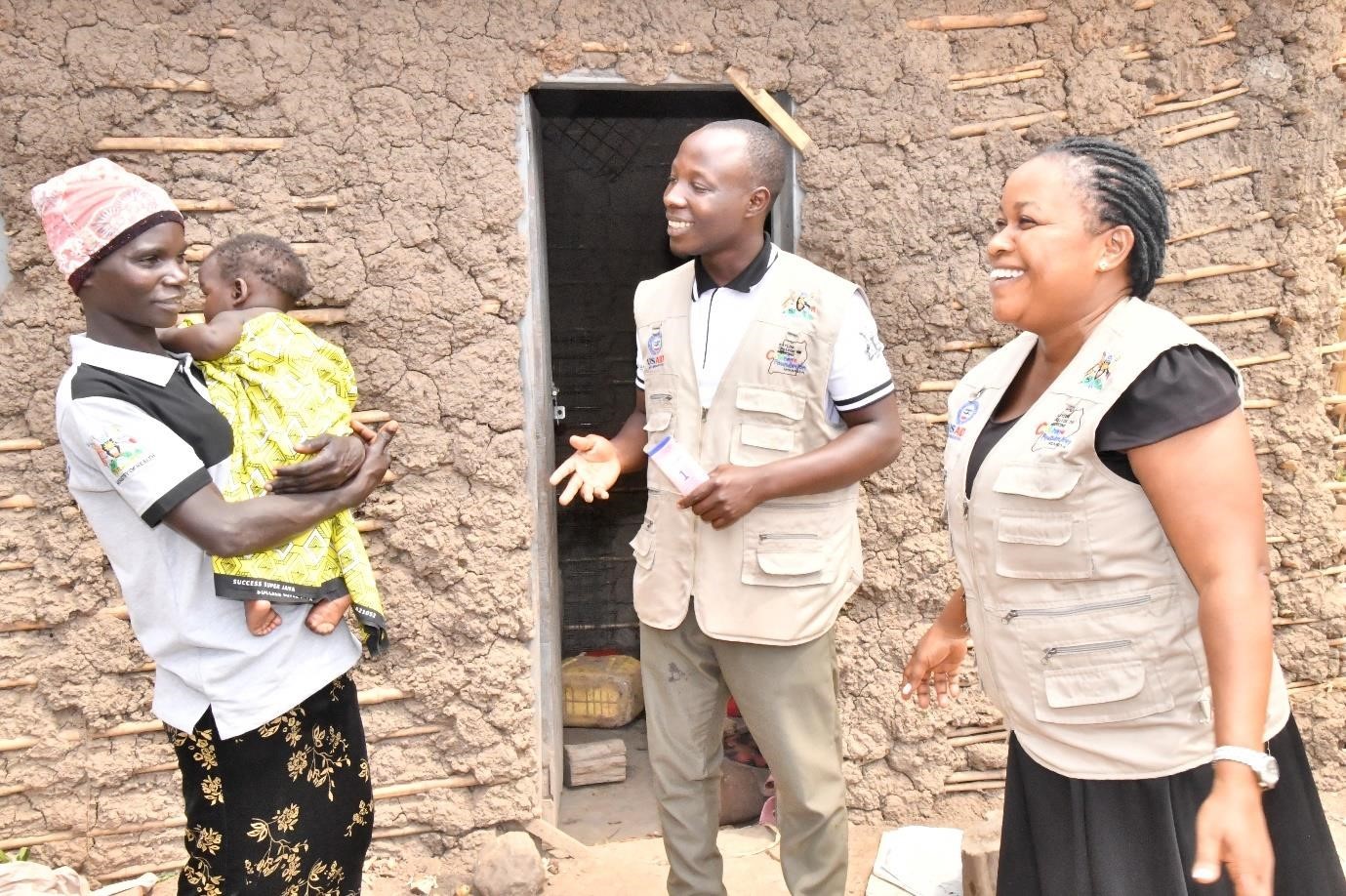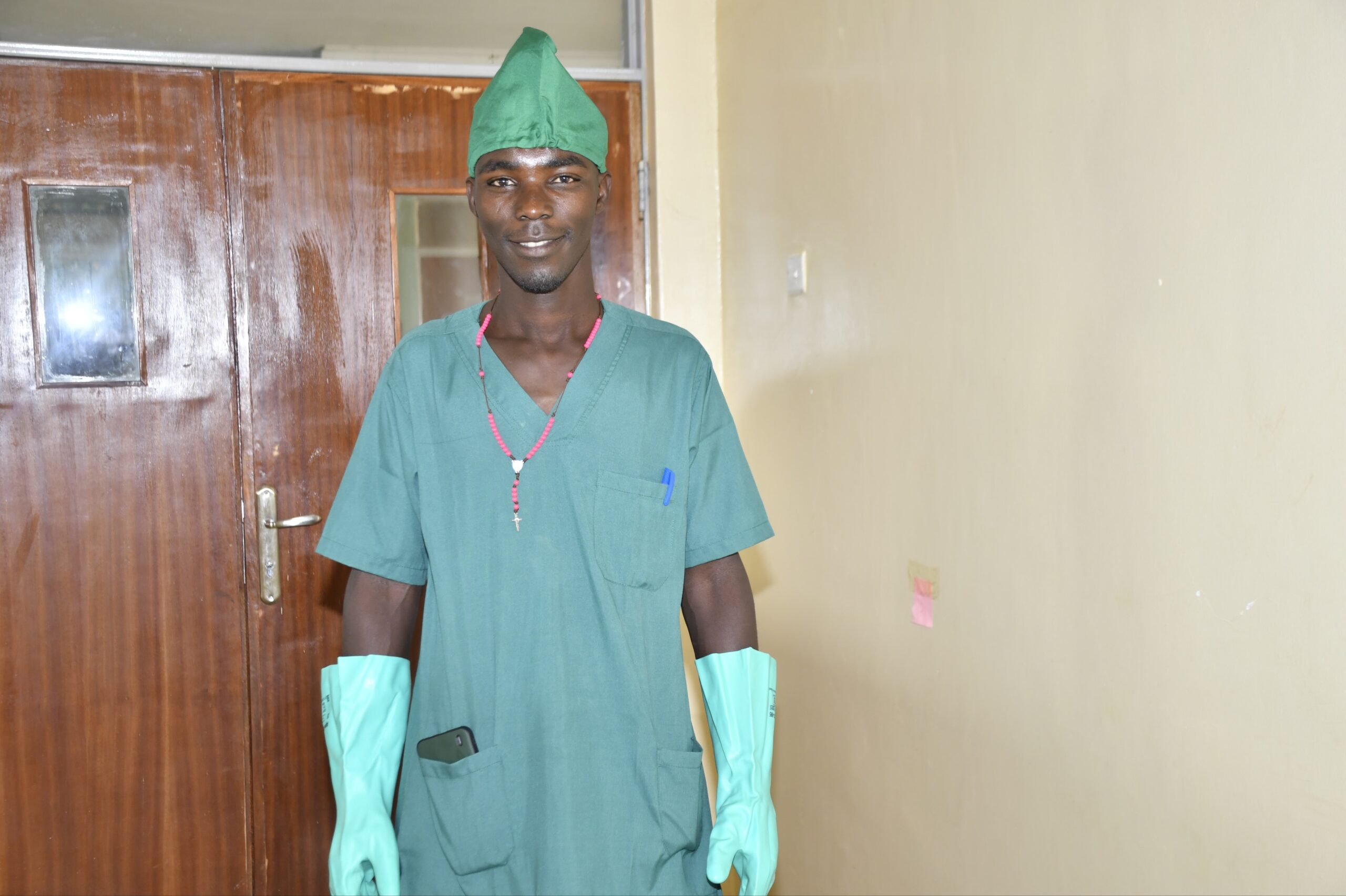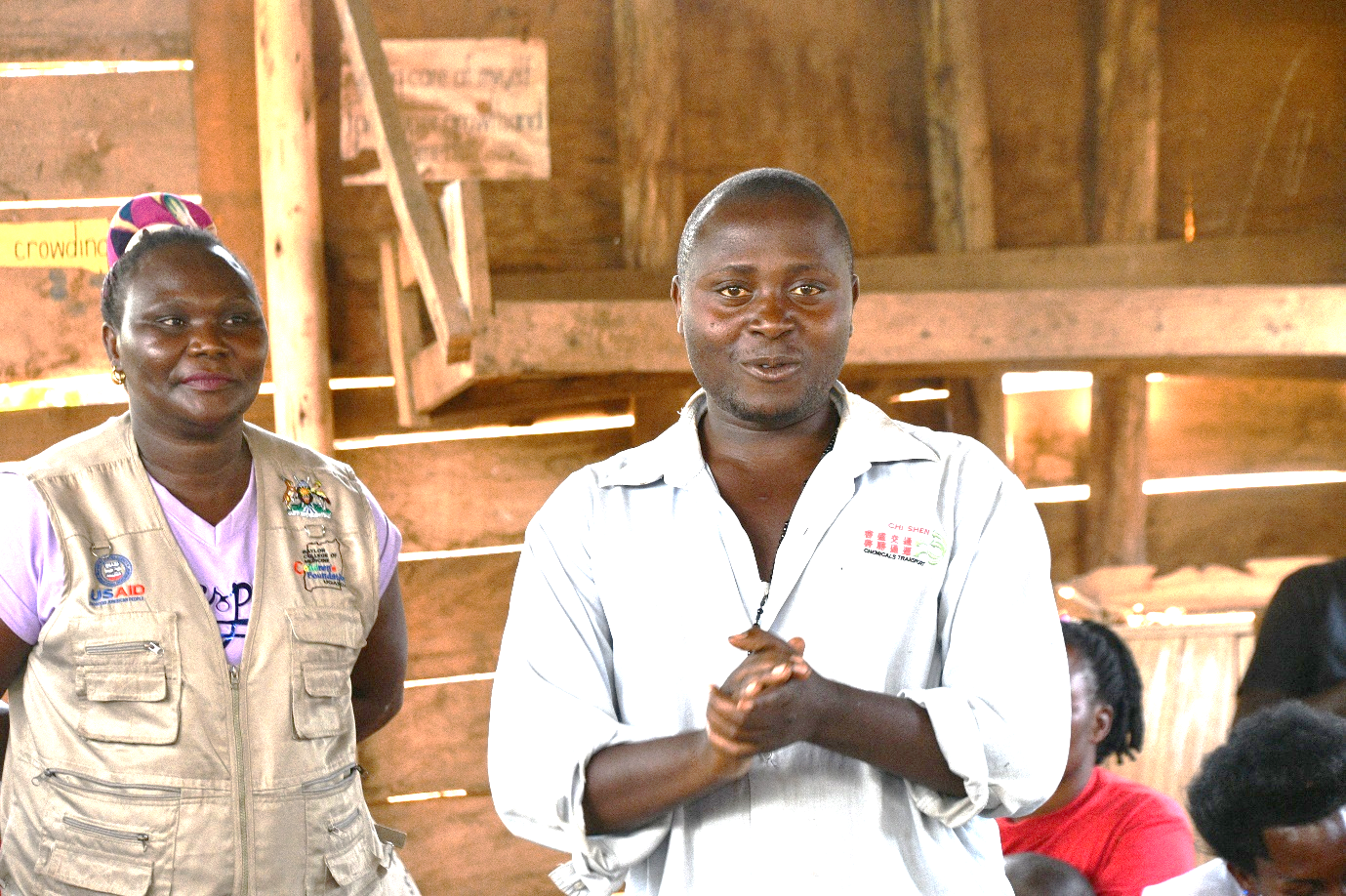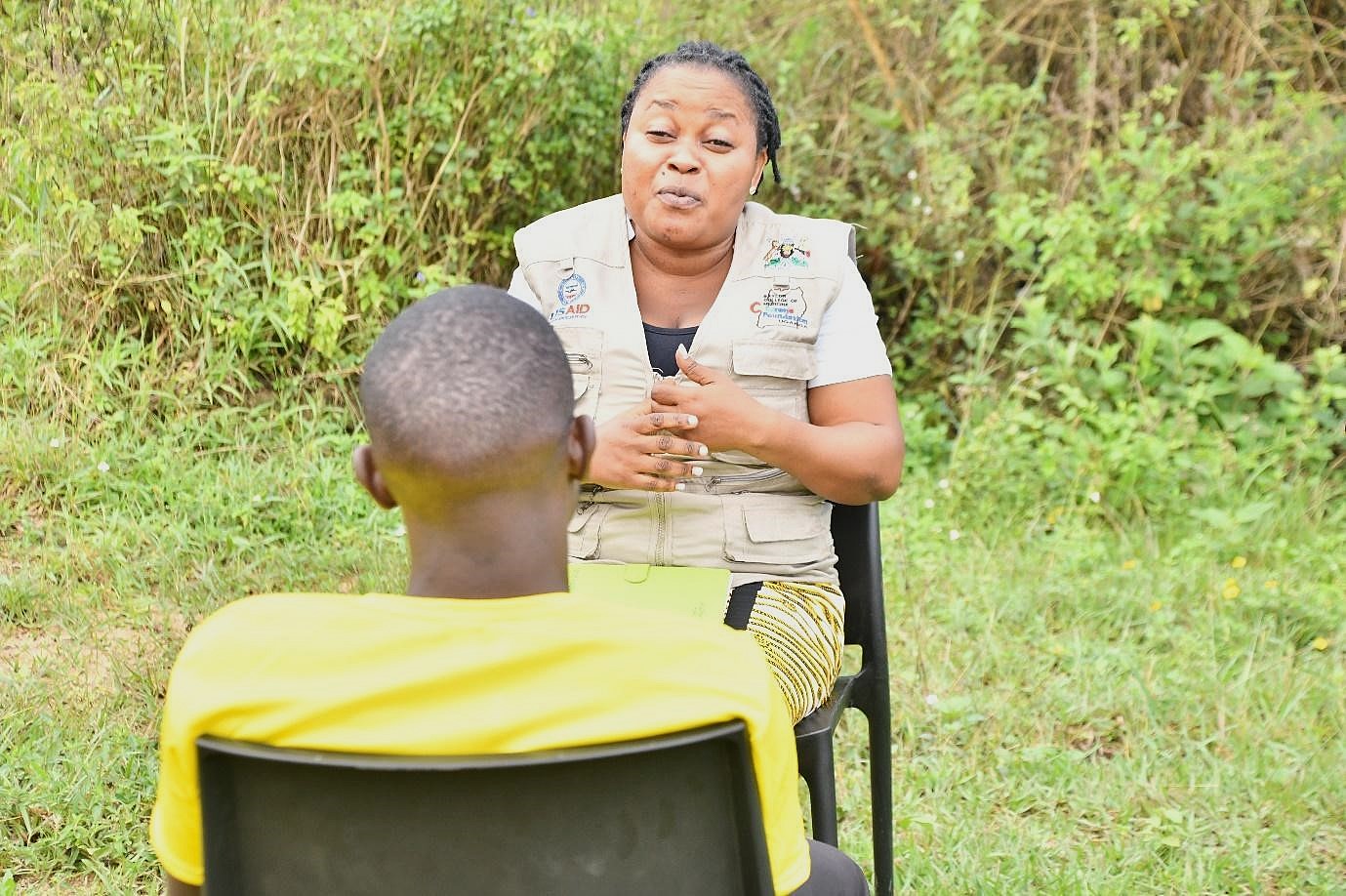A medical student who survived Ebola shares his story of how he kept the disease from spreading from him to others, how he survived, and became resilient on the disease’s frontline.
Abert, 34, will never forget the day he was admitted at the Fort Portal Regional Referral Hospital (RRH) Ebola Treatment Unit (ETU). On September 27, 2022, Abert walked into Fort Portal Regional Referral Hospital by himself. “I am a probable Ebola patient. My primary contact has Ebola”. These were Abert’s opening remarks at the Hospital Reception Desk.
Attempting to avoid the unavoidable
“Following the Ministry of Health’s public announcement that the Ebola Virus Disease had broken out in Mubende district, I took my sick friend, Colleb, to Mubende Regional Referral Hospital, where he was diagnosed with the Ebola Virus Disease (EVD),” narrates Abert. “I immediately packed my bags and returned to my home in Bunyangabu district, which is 202.7 kilometers away from Mubende,” Abert says, explaining that he knew he would contract Ebola but was too afraid to stay.
Trying to save my family’s life
A day after, Abert began to feel pain in his feet and fingers. He immediately isolated himself and asked his wife to keep his utensils separate. Over the next couple of days, he developed a fever, abdominal pain, diarrhoea and general body weakness. When treatment failed, I set off for Fort Portal Regional Referral Hospital where I had heard that my friend had been transferred for clinical management,” narrates Abert.
Upon arrival at the hospital, Abert was isolated. When his sample results were returned, he was confirmed to have the EVD. “I was taken to the Ebola Treatment Unit (ETU), walking by myself while feeling deeply worried for my wife. When Ebert’s wife was tested, she did not have the EVD. This relieved Abert as he prepared for what he thought would lead to the end of his life.
In the Ebola Treatment Unit (ETU)
“When I arrived at the ETU, I looked for my friend Colleb. I found him sad and disheartened and he told me about the deaths of two healthcare workers, Dr. Mohammed Ali and Sister Nabisubi. This news increased my anxiety and fear of death. As a result, I made it a point to visit Colleb daily not only to encourage him, but also to comprehend and prepare for my next fatality stage. Regardless, I was determined to fight until the bitter end to survive this ordeal.
As a result, I agreed to be enrolled for the monoclonal antibody treatment, which is a World Health Organization-recommended treatment for Ebola. I tested negative for Ebola within 10 days and was discharged from the ETU, a recovery period that was faster than that of my fellow colleagues who had not enrolled for the voluntary treatment.
Back at home
When I returned home, I was accompanied by a medical doctor who together with my local leader and village health team member sensitized my community about the symptoms of Ebola, how it is spread, and what prevention methods should be used. The doctor also emphasized that I was free from Ebola. “After the sensitization, I started to notice a subtle shift in the attitude of the community. People who feared coming near my home and workers started to slowly accept us,” reveals Abert.
Receiving post-Ebola support
Abert is currently receiving assistance from the National Ebola Survivors Program. The program was established by the Ministry of Health with support from Baylor-Uganda and with funding from the United States Agency for International Development (USAID). According to Dr. Gerald Mwima, the Program Response Manager, the program provides medical care, mental health and psychosocial support services to Ebola survivors, including male survivors who are receiving counselling to promote safe sexual practices until their semen tests negative, twice in a row. “I am delighted that my semen has finally tested negative,” says Abert, who received the two tests.
